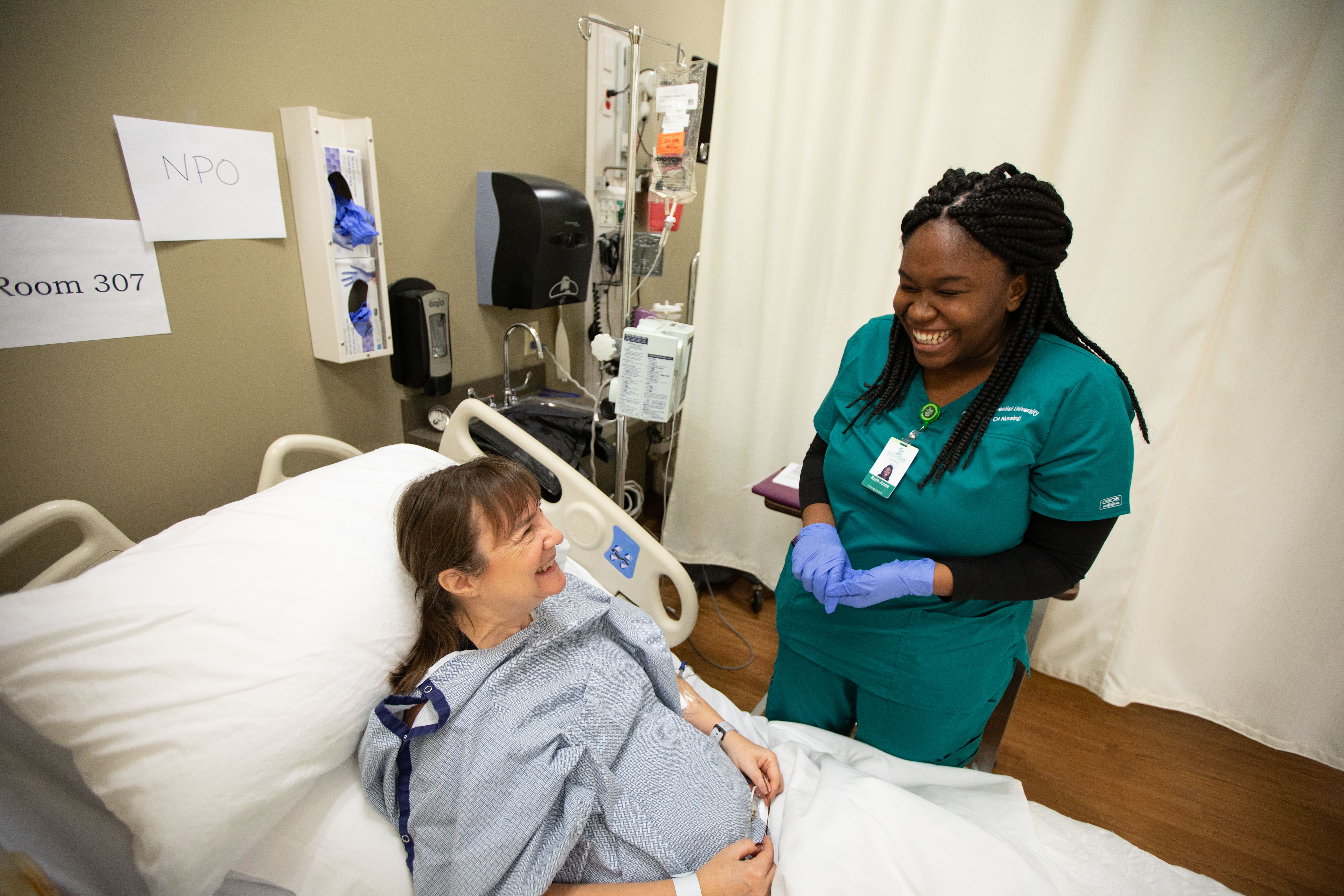The RN to BSN Track at Southern
This flexible program is designed to help nurses transition seamlessly into the next step in their careers.
Explore Program Details Start Your Application
This flexible program is designed to help nurses transition seamlessly into the next step in their careers.
Explore Program Details Start Your Application
The world of healthcare needs more passionate, dedicated nursing professionals who are committed to delivering the highest levels of patient care. If you've completed an Associate of Science in Nursing (ASN) or an Associate Degree in Nursing (ADN) and are ready to take on new responsibilities or jump into a new role, then earning a BSN can help you get there.
Here are some of the top reasons for beginning your journey toward earning a BSN:
Ultimately, this is what working in healthcare is all about. The skills and knowledge you'll learn in the BSN program will help you deliver a higher level of patient care. Studies show that hospitals that employ more nurses with a BSN or higher are able to create better experiences, shorter lengths of stay, and lower medical bills.
Earning more advanced degrees also opens you up to higher earning potential. The skills, knowledge, and level of experience you have will help you deliver a higher level of patient care. Hospitals and healthcare organizations are looking for nurses who are prepared to become leaders, and earning your BSN can help you do that.
The more advanced your nursing degree, the more career opportunities will be available to you. Earning a BSN will make you more valuable to future employers and open doors to new and exciting careers. If you've been thinking about making a change to your nursing career, earning your BSN will help you take that next step.
There's something deeply fulfilling about furthering your education and all of the benefits that come with it. In the end, this is your journey and your career. What will that mean to you? How does taking the next step in your career help to fulfill your goals? Going back to school is a challenging thing, but once you earn that degree, nobody can take it from you.
Earning a BSN opens up new career paths and higher earning potential than those with an Associate Degree in Nursing (ADN), an Associate of Science in Nursing (ASN) or a Certified Nurse's Assistant (CNA).
The average salary for nurses is $75,330. However, your actual salary will depend on which state you work in, your level of experience, and your area of specialization.

If you’ve completed an Associate of Science in Nursing (ASN) or an Associate Degree in Nursing (ADN), you can continue to advance your nursing career with a Bachelor of Science in Nursing (BSN).
Download our infographic to learn more about:
Term Start |
Application Deadline |
|
Summer |
May 1 |
|
Fall |
August 1 |
|
Fall 2 |
October 1 |
|
Winter |
January 1 |
|
Winter 2 |
March 1 |

Director of the Adult
Degree Completion Program
cwright@southern.edu
423.236.2585
Trying to earn your degree while balancing your work schedule and personal responsibilities would be nearly impossible—which is why Southern's BSN program offers an online option.
Meet Cynthia Wright, Director of the Adult Degree Completion Program here at Southern. If you’ve got questions about Southern’s program or want to learn more about what financing options may be available to you, she can show you the way.